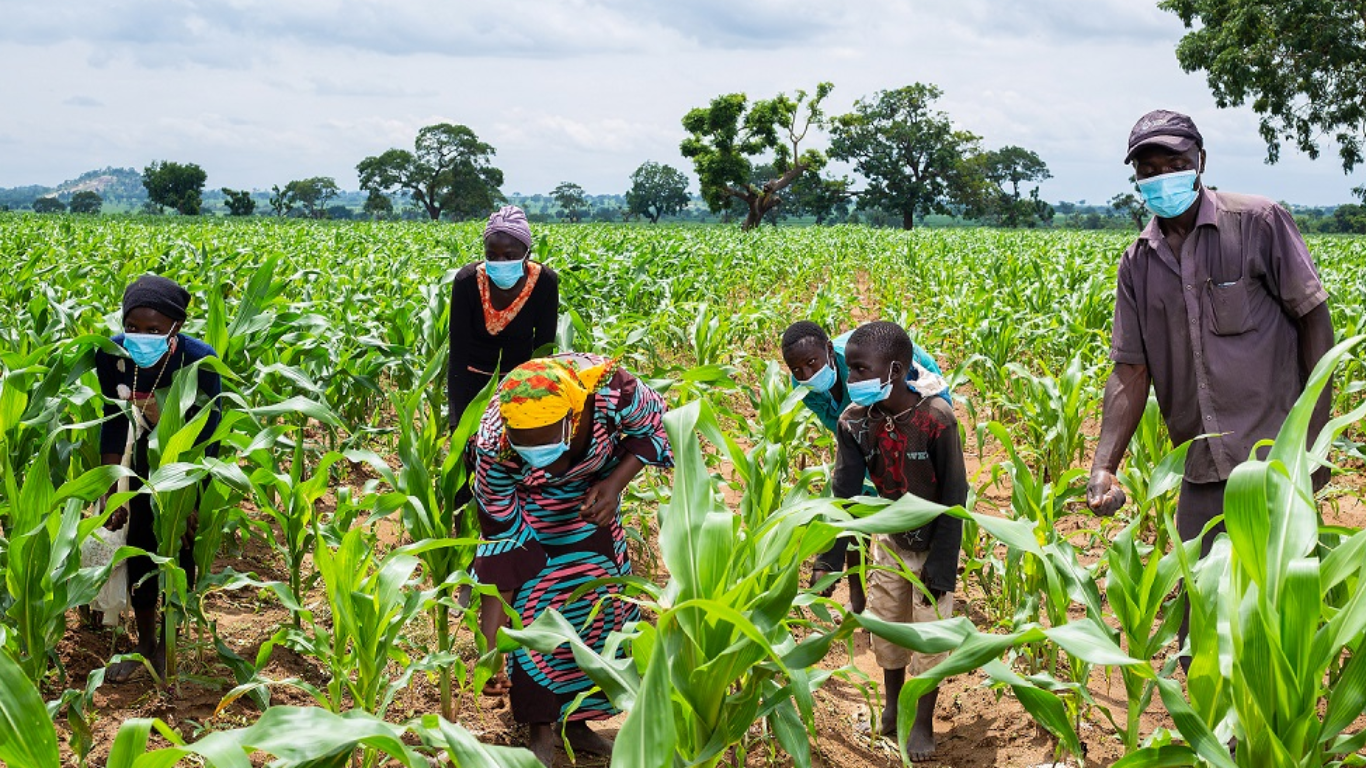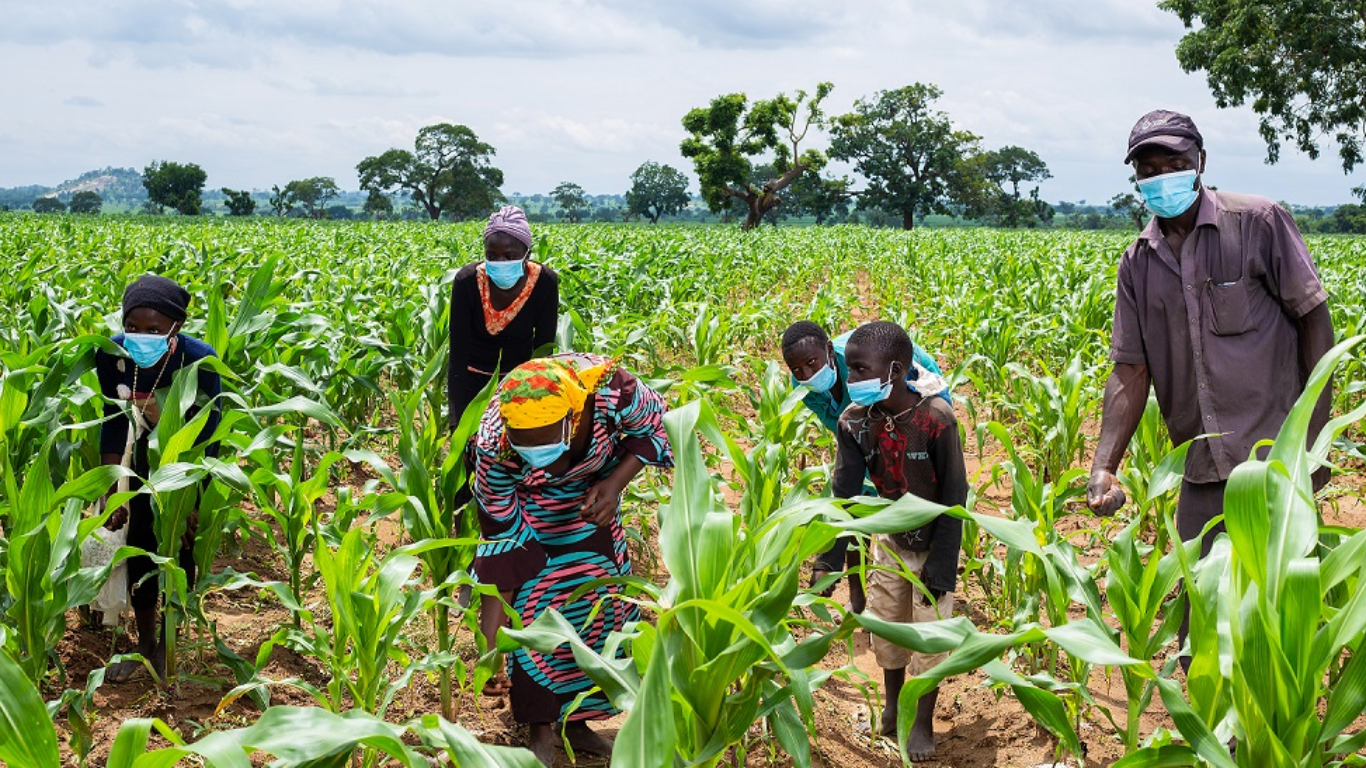Suspicions, criticisms as Nigeria launches Bill Gates-funded GMO maize variety, Tela maize
Femi OGUNLANA
Nigeria’s federal government has launched the Genetically Modified Organisms (GMO) maize variety named TELA, stating it is an effort to strengthen and boost maize production in the country.
The TELA Maize was developed at the Institute of Agricultural Research (IAR) at Ahmadu Bello University, Zaria, Kaduna state, in collaboration with the African Agriculture Technology Foundation (AATF), funded by the Bill and Melinda Gates Foundation and other partners.
Advertisement
At the launch in Abuja, the Minister of State for Agriculture and Food Security, Senator Aliyu Sabi Abdullahi, said the government will only do things that will promote the citizens’ welfare, health, and security.
However, criticisms have continued to trail the move as some have said the Tela maize has health implications with some adding that Bill Gates has no love for Africa, “so the new variety is suspicious, our farmers should steer clear of it.”
Senator Abdullahi stated, “It is significant for us to realise that the technology we are talking about today is Nigeria-driven, and whatever concerns that Nigerians are expressing are not unfounded. There is no technology that has come anew and does not receive pushback. It is normal.”
In a corroborative tone, the Chairman of the African Agriculture Technology Foundation (AATF) Board of Trustees, Professor Aggrey Ambali, said Nigeria’s newly launched TELA maize variety will bridge the country’s annual maize production deficit.
“Developing and commercialising this transgenic maize variety, Nigeria’s journey to food security and better livelihood for farmers is achievable,” he said.
In addition, Professor Ambali stated that the TELA Maize variety, with its remarkable yield potential of up to 10 tons per hectare compared to the current average of three tons per hectare, represents a groundbreaking development in the collective effort to boost Nigeria’s agricultural productivity.
The TELA maize launch was presented as a new technology-driven approach to farming and food production. According to Prof Ambali, the new maize variety, which incorporates resilience against drought and pests, is a testament to the power of biotechnology in addressing some of the most pressing challenges in agriculture, such as Fall Army Worm (FAW) pest.
The Executive Director of the African Agricultural Technology Foundation (AATF), Dr Canisius Kanangire, commended the Nigerian government for supporting the project.
“We witnessed government bodies working with institutions such as AATF and the private sector for the country’s good,” he said.
Advertisement
Nigeria became the second African country after South Africa to approve GMO Maize for commercial planting in February 2024, following Bill Gates’s April 2024 meeting in Riyadh with President Bola Tinubu on the need to adopt GMO seeds.
Tela maize variety, it is further found, is genetically engineered for improved insect resistance and drought tolerance, to boost farmers’ yield per hectare and also complement existing demand gaps.
Concerns have emerged over the environmental and health impacts of GMOs, their impact on traditional farming methods, and issues around seed patents.
Governments in developing nations are responding to those concerns in a variety of ways with some banning GMOs outright, some embracing the technology, and others attempting to find a balance between the concerns and needs of all sides.
According to the International Service for the Acquisition of Agri-biotech Applications (ISAAA), at least 33 major food crops have been genetically modified globally. Of these, four (maize, cowpea, cotton and soybean) have been officially approved for commercialisation by the Nigerian authorities, with Nigeria listed among the six African countries leading in biotech crop adoption across the continent.
The adoption of Tela maize generated controversies among anti-GMO groups in Nigeria, particularly the environmental think-tank Health of Mother Earth Foundation (HOMEF) and several other groups, who issued a joint statement at the time condemning GMO adoption in the country.
While commending the intention of the Nigerian authorities to address food insufficiency in the country, HOMEF expressed disappointment over the release of the genetically modified varieties.
The group noted that there is no evidence of a risk assessment conducted before the release of the Tela maize on either the website of the National Biosafety Management Agency (NBMA), the agency saddled with the responsibility of regulating the uses of GMOs or the Biosafety Clearing House of the United Nations Convention on Biodiversity, where parties are expected to upload updates on their decisions/use of GMOs/LMOs.
In his reaction, HOMEF’s Executive Director, Nnimmo Bassey, said, “It is totally unacceptable that in the name of food sufficiency, the country is exposing its citizens to products of risky technologies without adequate, independent and/or long-term assessment on their impacts on human and environmental health.”
The environmentalist said there are many challenges associated with genetic modification crops that cannot be denied.
So far, he claimed that GMOs have been linked to cancers, diseases, allergies, and all sorts of health challenges due to environmental implications because of their dependency on toxic pesticides and the destruction of biodiversity and nutritional diversity.
“We are also concerned that there is no way to label or inform our farmers that they are planting GMO maize. To deny Nigerians the right of choice is highly objectionable and wicked,” Mr Bassey noted.
He said it is expedient that the government conduct independent long-term feeding tests and environmental/biodiversity assessments before any GM crop is approved for use and not merely testing to confirm productivity or performance.
Mr Bassey charged the Nigerian government to understand the difficulties of recalling genetically modified living organisms and to quickly withdraw the Tela maize.
On his part, Qrisstuberg Amua, Executive Director, Centre for Food Safety and Agricultural Research, noted that citizens have every reason to be worried about Tela maize adoption in the country.
“Not only citizens, our political and economic leaders also have a lot to be worried about this development,” he said.
He said citizens should be worried about the new maize varieties for reasons ranging from its health implications and lack of sufficient details about the maize, adding that the health implications of GMOs are motley and that they are negative, coming in the forms of cancers resulting from hormonal or endocrine and immune system disruptions.
Mr Amua listed other possible health implications of GMOs to include fertility sterilisations, metabolic derangements, cardiovascular health disruptions, children obesity and attendant issues thereto, autism and attention deficit hyperactivity disorders in children, mental health derangements and early memory decay (dementia) in individuals above 40 years of age and so much more.
He emphasised that the adverse health implications could emanate from both the genetic modifications of the organism which often involve recombinant splicing or stitching of DNA either through manipulations of specialised proteins that make the Messenger RNA (MRNA) or through what looks more like cut and join using the CRISPR (an acronym for clustered regularly interspaced short palindromic repeats) technology.
Also, Mr Amua said from the many pesticides like glyphosate (the primary active ingredient in the commercially ubiquitous ‘Roundup’) and irks, that are used in the biotechnological engineering that ensures these GMOs are pest resistant, the varieties can tolerate the application of higher concentrations of phytotoxic pesticides as herbicides.
Based on this, the professor of bioinorganic chemistry said some of the GMOs are labelled as “Roundup Ready’ or RR” such as the RR Corn or RR Soy.
“Also, there are adverse health implications to the environment due to unregulated applications of these carcinogenic, mutagenic and teratogenic arrays of pesticides, as a result of higher tolerance of these GMOs to pesticides, generally,” Mr Amua said.
These environmental toxins, he said, tend to persist in the environment and weave their way up the food chain and ultimately into humans through menu choices.
Advertisement
“This is one other reason for the burgeoning cases of otherwise not so rampant non-communicable diseases (NCDs) like diabetes, cancer, hypertension, dyslipidemia, arthritis, etc. nowadays even in younger populations of our communities,” he said.
He stressed that the adoption of GMOs has adverse implications for the food production system and biodiversity, as their promotion encourages monocropping and eventual extermination of rather organic and even indigenous seed types.
“Lastly, they pose adverse economic implications and even strategic food and general security implications; as when a foreign multinational controls your food supply system (as these GMOs are patented products of non-national conglomerates), your economy and even strategic security can easily be compromised from outside of your shores,” he said.
He urged Nigerians to reject all GMOs and also engage in various levels of personal and community education, sensitisation, and advocacy to demand the withdrawal/repeal of policies and legislation that allow licensing and indeed permit the cultivation, distribution and public consumption of GMOs.
“We should also rethink our consumption patterns to return to wholesome organic and indigenous foods that are not genetically modified,” he said.





